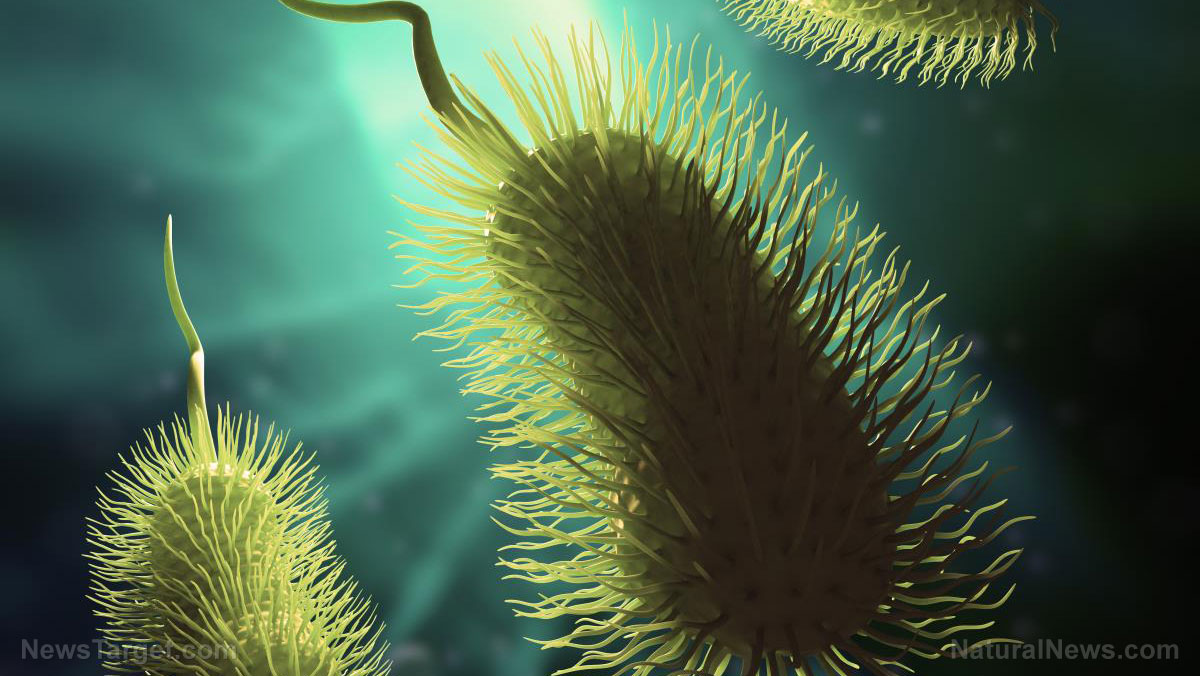Your gut bacteria may be telling you what to eat in order to FEED THEM
08/04/2017 / By Russel Davis

Two new studies revealed that bacterial composition in the intestines may greatly affect the dietary choices and reproductive success in animals. The studies were carried out by a team of researchers at the University of Sydney’s multidisciplinary Charles Perkins Centre and School of Life and Environmental Sciences and the Macquarie University’s Department of Biological Sciences.
The first study, published in Current Biology, examined the effects of gut bacteria on the foraging behavior of fruit flies. The researchers also assessed how the insects’ foraging behavior influenced the type and timing of bacteria they were exposed. Likewise, the experts examined the insects’ olfactory-guided preferences to nutrients and food microbes.
The researchers found that the fruit flies foraged for nutrients to attain a balanced diet. The experts also noted that the insects foraged for bacteria to populate a healthy gut microbiome. When taking into account the animals’ olfactory response to certain food bacteria, the researchers found that the fruit flies were more likely to forage for beneficial bacteria over less beneficial ones.
“We knew animals foraged for nutrients, in ways that optimise their performance and physiology. Understanding they also forage for beneficial microbes opens up a whole new dimension for future research. The symbiotic relationship can shape how animals, including humans, may perceive and prefer different nutrients and microbes for better overall health,” said lead author Dr Adam Wong.
The second study, featured in Biology Letters, examined the effects of intestinal bacteria on the insects’ reproduction. To carry out the study, the researchers injected the fruit flies with different types of microbes in order to determine the consequences of altering gut bacteria on the animals’ reproduction. The researchers concluded that the type of gut bacteria influenced the success of reproductive investment and mating, as well as the offspring weight in the animal models.
“Given the importance of the gut microbiota in physiology and health, our findings reveal important and long-lasting effects of gut bacteria on reproduction and offspring traits. As understanding of the gut microbiome and its effect increases, the potential for breakthroughs in understanding broader health impacts increases too,” lead author Dr Juliano Morimoto told ScienceDaily.com.
Another animal study demonstrates how gut bacteria influences diet
The results of the recent studies were reflective of another animal study demonstrating how gut bacteria influences dietary choices. As part of research, health experts fed three groups of fruit flies with a sucrose solution of varying amino acid content for 72 hours. After the diet period, the flies were then presented a sugary solution along with protein-rich yeast.
The findings revealed that fruit flies lacking essential amino acids had stronger urges to consume the protein-rich yeast in order to compensate for the missing nutrients. However, the researchers found that this craving was neutralized when they increased five types of bacteria in the insects’ digestive tract. According to the researchers, the animals’ amino acid levels remained low. This suggests that the bacteria not only made up for the lost nutrients, but also served as miniature metabolic factories that transformed the food into new chemicals.
“What the bacteria do for appetite is kind of like optimizing how long a car can run without needing to add more petrol to the tank…How the brain handles this trade-off of nutritional information is very fascinating, and our study shows that the microbiome plays a key role in telling the animal what to do. This shows that the gut microbiome has evolved to titrate only the normal essential amino acid intake… It’s an interesting therapeutic window that could be utilized to improve behaviors related to diet one day” senior author Carlos Ribeiro explained.
Sources include:
Tagged Under: bacteria, diet, food choice, gut bacteria, gut flora, intestines, mating success, reproduction, weird science




















